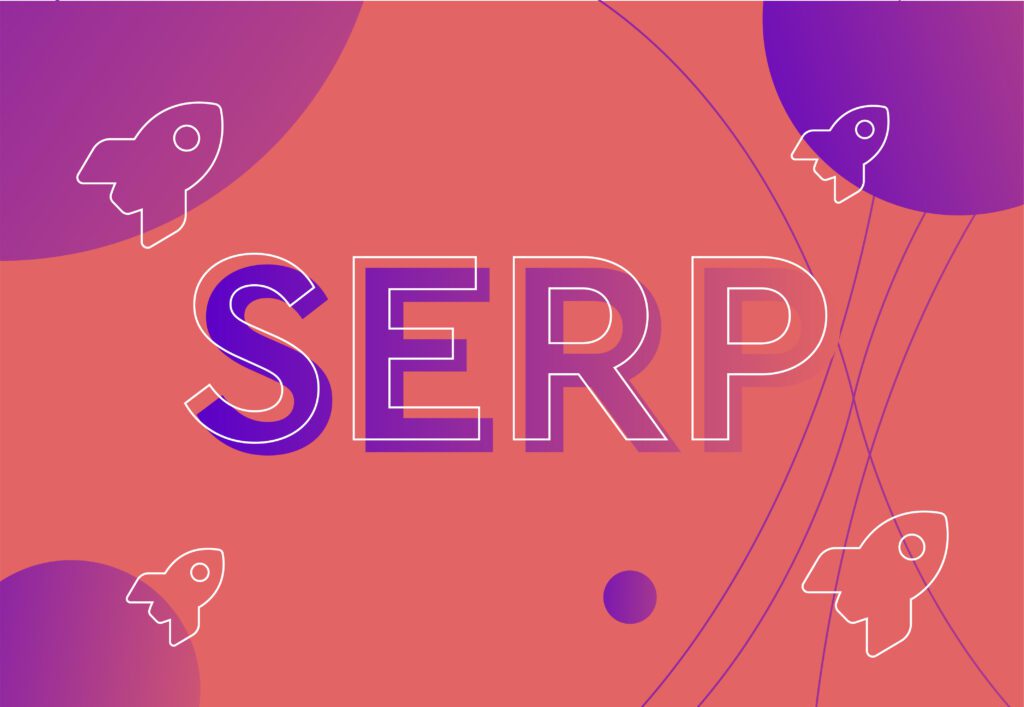
The future of SERPs: Google algorithm updates 2024

At the tail end of last year, a series of Google algorithm updates set the stage for what we can expect to be another industrious year for search engines.
But what’s ahead for the SERPs in 2024? And what should we be prioritising in our organic SEO strategies to align?
We’re taking a look at the key areas hit by the most significant algorithm updates of late, making our predictions on how this will impact search optimisation in 2024.
Key areas impacted by Google algorithm updates
Content quality

Whereas in the early phases of the internet, emphasis on content quality was somewhat lacking, the need for material that’s better researched, better structured, and better written has grown.
Both in terms of authorship – with Google seeking trust signals on both expertise and experience now (more on this below!) – and originality, getting your content to rank nowadays certainly requires you to prove your stuff.
Did you know: that a reported 7.5 million blogs are published on the internet each day?
In 2024, stacks of content now exist online, and, with the wider adoption of AI, this has only accelerated content production exponentially. But what does this mean for the SERP?
Google Helpful Content Update
In September 2023, Google rolled out its third iteration of the Helpful Content Update. With this, emphasis on writing content specifically for the user – rather than the search engine – became expressly clear.
Following this rollout, sites that were exhibiting poor signals to Google about the ‘helpfulness’ of their content really took a hit. Essentially, content of poor quality, such as those that were unoriginal, leaning too heavily on AI or that didn’t appear trustworthy, were penalised and saw their rankings plummet as a result.
For 2024, the SERP should produce more accurate results whatever your search query – in an ideal world. With better-quality content being rewarded, companies investing more resources into user-focused content marketing will have a higher chance of getting ahead.
E-E-A-T: The Added ‘E’
E-A-T (Expertise, Authoritativeness, Trustworthiness) has been around since 2014. First introduced by Google, it’s one of the many guidelines that they use to determine the value of any given piece of content.
In 2022, they added another E – for experience. Similar to the above, E-E-A-T is Google putting more emphasis on quality, pushing for authorship to be real people with actual, qualified insight to share.
Impact on the SERP
![]()
In 2024, the SERP will favour content that showcases more of a first-hand account. This will mean things like video content will see a boost (harder to cut corners, with video marketing stats already looking promising).
Example: If you are writing for a food website – say, you’re publishing a recipe blog – what elements can you add to prove that you know what you’re talking about? That you’ve made it, tasted it, rated it.
There’ll be a greater need for original media – like photos – as well as anecdotes and novel insights to elevate the quality of the article.
Again, this isn’t exactly super out of the blue, with search engines favouring content crafted with more TLC for a while now. It’s just that, with September’s Helpful Content Update and the introduction of the bonus ‘E’, the preference for novelty and authenticity has become less of a recommendation and more of a requirement.
Similarly, user-generated content, too, will have more space in the SERP. Since the tail end of last year, we’ve been seeing lots of this already – with sites like Reddit and Quora seeing major surges in rankings.
Artificial intelligence
We’ve all seen how AI has taken off in the past year. With generative AI tools like ChatGPT and DALL-E still in their relative infancy, adoption rates have already shown AI content to be incredibly in demand.
But, in demand by marketers and content producers from an efficiency point of view does not necessarily go hand in hand with the interests and demands of the readership – so, there’s that caveat.
And the impact on the SERP?
Google Search Generative Experience
Google has already teased an AI-powered update with the rollout of its Search Generative Experience (or simply SGE).
With SGE, Google aims to create a more interactive experience for users – a more proactive, intuitive experience that gets customers stuck on the SERP for longer. Their aim is for the SERP to become more conversational, giving users greater value with more thorough responses.
Essentially, you type your query into Google as you typically would, but instead of being directed to other websites exclusively, you’ll get suggestions right there in the SERP, compiled from multiple sources. To see it in action, Semrush has a great article about SGE and how it works.
Should you want to learn more about the source, you can still go ahead and click through to the website. What we can anticipate from SGE is that it’ll likely lead to more engagement and activity on the SERP itself (rather than the SERP simply being treated as a gateway, like it is now).
Google SGE uses generative AI, which blends natural language processing and machine learning, to compile its suggestions. It’s still in its experimental phase as of May 2024, with rollout exclusive to a small subset of the US.
How influential will generative AI be on SERPs, and to what degree will it be used to update the interface and experience? Time will tell, but watch this space…
Interested in learning more about the technologies that are shaping the SERP? Check out Emerging Technologies in SEO 2024, which explores SGE further.
FAQs
Answered by Jamie Beatty
How often are Google updates rolled out?
Google updates aren’t rolled out on a regular basis. This is down to when Google decides.
How quickly after a Google update announcement is it rolled out?
Usually, Google doesn’t give a warning for an update. These are done on an immediate basis.
Will my website be immediately affected by a Google Algorithm update?
This depends on what the update is about. If you are operating under potential grey hat SEO, you may be affected. Tools can monitor the volatility of the SERP. Google updates can usually be predicted by looking at this.
Does generative AI mean fewer organic pages are on page 1 of the SERP?
The AI overview on the SERP is in the very early stages and at current, doesn’t provide the same high-quality content as organic results. Hence, not serving users intent. Naturally having these featured snippets etc will push organic rankings further down the SERP.